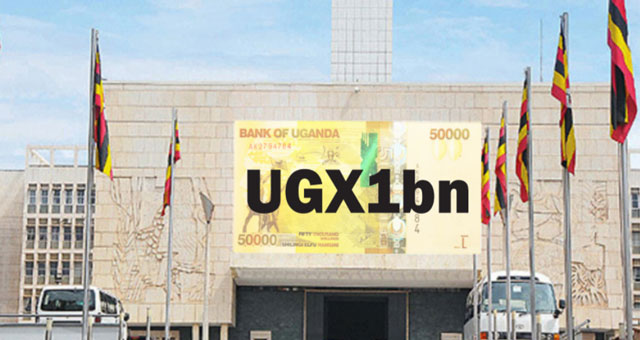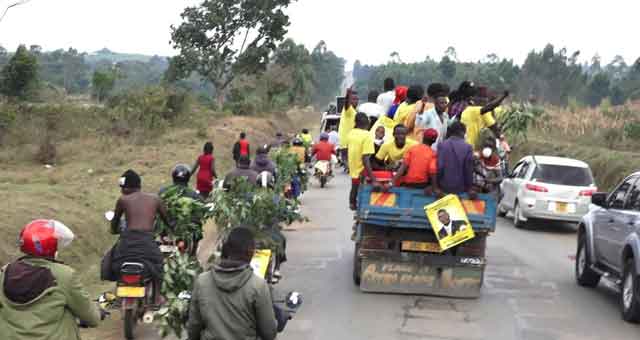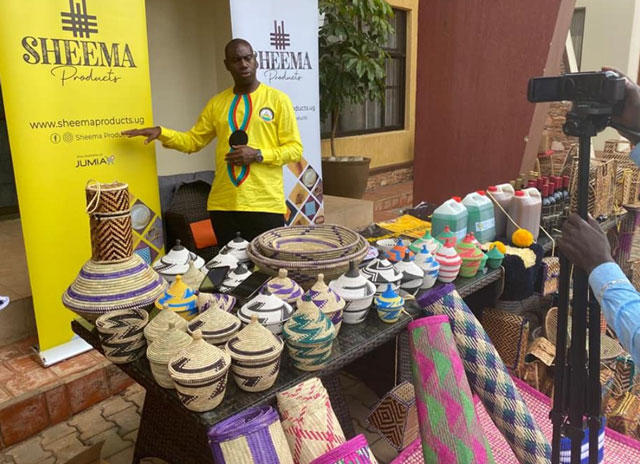
Report shows how Ugandan political candidates spent on elections
SPECIAL FEATURE | IAN KATUSIIME | In a place like Sheema, you can’t win an election if you do not have 1 billion (shillings),” Stephen Katwiromunda, the campaign manager of Dicksons Kateshumbwa, the MP-elect for Sheema Municipality told The Independent on March 25.
This was in Kabwohe, a small but growing town in Sheema district in western Uganda where the fierce battle for this three year old constituency was fought between Kateshumbwa and Elioda Tumwesigye, the minister for Science and Technology.
Milton Orisiima aka Kayamani, the publicity secretary of National Resistance Movement (NRM) in Sheema district who was closely involved in the election as he was managing minister Elioda’s campaign says Kateshumbwa unleashed a spending bonanza unlike anything seen before in the small town.
Sheema Municipality was carved out of Sheema North in 2018. Elioda, then MP for Sheema North, ran to contest in the municipality saying 80% of it fell in his old constituency. He won the by-election but in 2021, Kateshumbwa put an end to his run as area MP for 20 years.
Kateshumbwa’s campaign manager, Katwiromunda, refused to say exactly how much they spent on the election but there is wide speculation because Kateshumbwa had a huge number of campaign agents; about 64 by some counts. They all earned weekly and monthly allowances and were also paid at unscheduled intervals.
Kateshumbwa’s campaign activities were not any different from those of other candidates. But he was singled out and appears to have earned the moniker `Mr. Money bags’ because of the scale of his spending and because he had just left a top job at the Uganda Revenue Authority (URA).
Even candidates who are not known to have either high paying jobs or huge campaign funds say they had to spend heavily.
“If you don’t have like (UGX) 1 billion plus, you can’t run for Kampala Woman MP,” said Faridah Nambi; a former candidate in the Kampala Woman MP race.

Nambi who says she runs a little-known NGO that links orphans to education bursary benefactors was speaking at a dialogue on election financing organised on March 31 in Kampala by Alliance for Campaign Finance Monitoring (ACFIM). The NGO seeks to promote transparency and accountability in financing politics and electoral processes.
ACFIM published a preliminary report of its findings this April titled “Who won the campaign spending power war in November and December 2020?”
It indicated that money determined the winner of the direct constituency MP elections in 56% of the constituencies ACFIM monitored.
“However, in 44% of the cases, money did not work as there were other structural factors that influenced electoral outcomes,” the report stated.
It adds that “money appears to have been slightly more effective in the races for district woman Member of Parliament (58%) than in the races for the direct constituency MPs (56%) which are largely dominated by men.”
ACFIM also documents a number of MPs who spent massively to win election such as Moses Magogo (also Federation of Uganda Football Association (FUFA) president) in Budiope East, and Peter Mugema aka Panadol of Iganga Municipality, all belonging to the ruling NRM party.
“ACFIM monitors who followed Panadol’s campaign trail estimate him to have spent in excess of UGX 1billion ($270,000) on the election which he went on to win,” a post on the ACFIM site reads. “Panadol always made significant cash contributions towards bereaved families. The amounts ranged between UGX 700,000 ($189.1) and UGX 1,000,000 ($270.2).”

Henry Muguzi, the executive director of ACFIM, also says there was heavy spending in the Bushenyi Woman MP race by Annet Mugisha, wife of Silver Mugisha, MD of National Water and Sewerage Corporation (NWSC). She defeated her four opponents. Reports also say the Hoima Woman MP Harriet Businge spent about Shs950 million.
Not surprisingly, candidates who won were reluctant to accept that they “bought the election”. Instead, it was the losers who were eager to cry out about how costly the election was.
Nambi was one of a number of losing contestants in parliamentary polls who reached the extent of asking the government to help them out with jobs or at the very least bail them out of their financial misery. Simon Peter Obilan who unsuccessfully contested for the Kumi County seat said he lost his home probably to a loan shark or mortgage but none of their claims could be easily verifiable.
The ACFIM event was held to reflect on the 2021 elections and for most former contestants, it is a memory they do not want to hold. But the story is almost the same after every general elections, aspiring and successful candidates mired in debt and some wallowing in poverty after their glorious years in parliament.
In June 2019, Elioda Tumwesigye wrote a letter to President Yoweri Museveni begging for financial relief after he incurred a debt of Shs850million from the 2018 by-election.
He wrote, “Your Excellency as I informed you then as I had been doing so through many letters of request since September 2018, I borrowed money from Money Lenders and a SACCO and now am under pressure to pay the accumulated principal, interest and now totaling to Eight hundred and fifty million Shillings (UGX 850m).”
It was never established whether Museveni bailed out his minister but after losing the election to Kateshumbwa this January, the minister could be in an even bigger pile of debt.
 The Independent Uganda: You get the Truth we Pay the Price
The Independent Uganda: You get the Truth we Pay the Price



